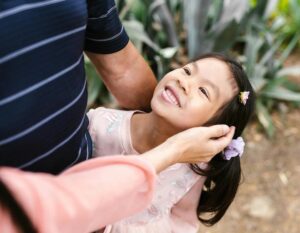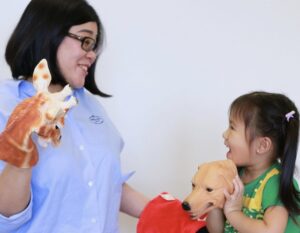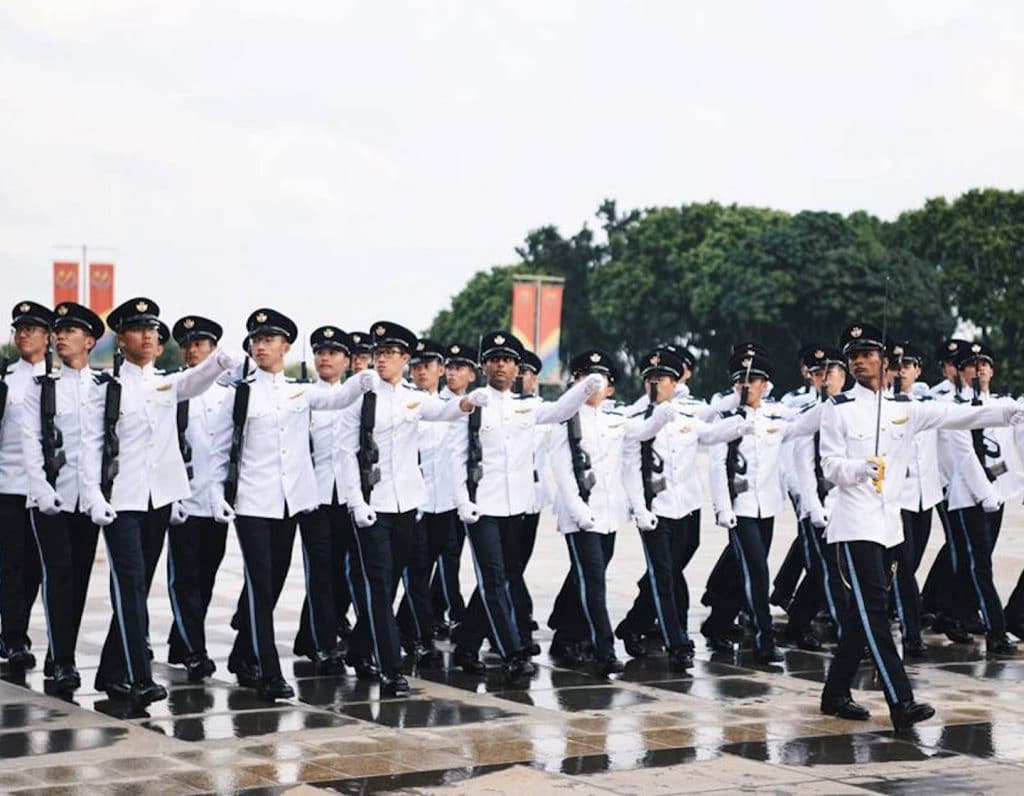
Ten years after completing his Singapore National Service, a young man reflects on its challenges and unexpected rewards
Throughout my teenage years I dreaded my enlistment day. My worry about the impending date increased with every government-issued perforated envelope that found its way to my mailbox. These letters clearly described the details of where I was required to report, but mentioned little to nothing about what to expect. I was 18 years old when my July enlistment day finally arrived.
What contributed to this difficult day was that my fate held something very different in store for me compared to my many international school friends. They were headed to the United Kingdom, the United States, Australia, and other destinations to begin their college careers and create new friendships. I, however, was about to take on a new role within Singapore’s society. As my friends embarked to attend Fresher’s week and fraternity parties, a handful of Singaporean friends and I were to become the newest additions to the island’s armed forces.
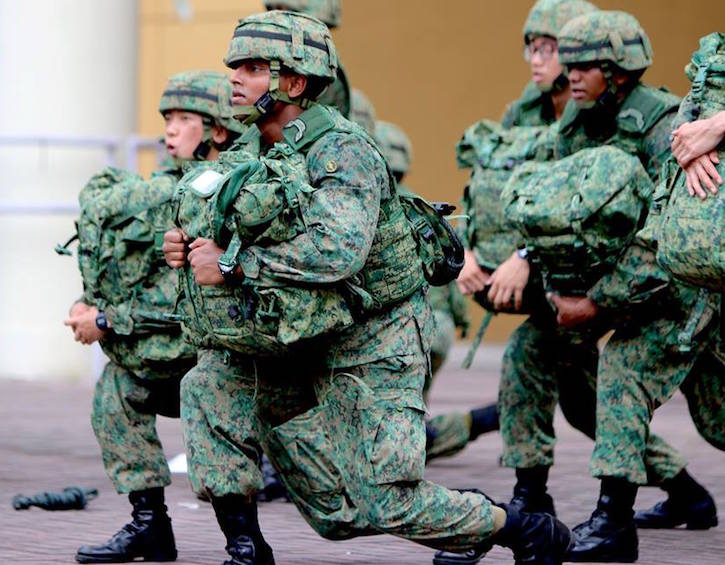
Basic Military Training (BMT) presented many distinct challenges. I was pushed to physical limits I had never faced before (even despite my minimal home-based training prior to enlistment). This entailed marches, runs, static workouts, and fitness tests. I also faced social challenges during the first few weeks of training. Specifically, I felt hindered given that I rarely interacted with local Singaporeans my own age due to my international schooling. At first I felt distant from my platoon mates. I did not understand their humor, their mannerisms, or their language.
As a result I often felt alienated, out of place, angry. There were distinct moments when I was left experiencing difficult emotions during BMT. I remember writing these thoughts and feelings in an army-issued notebook that was to be used for learning lecture content, such as how to disassemble an M-16. In my sadness, anger, and frustration I attempted to rationalize why my other platoon mates didn’t seem to feel this way (likely an assumption on my part). I began to believe that this was because I was not the typical Singaporean. I am not Malay, Chinese or Indian but rather, my Iraqi heritage led the government to label me as an “other”.
Throughout BMT I inherited various nicknames such as the ubiquitous “ang moh” (which was generally applied to most Caucasians) and “David Blaine” due to my uncanny resemblance to the street magician with my now-shaved head. My otherness was certainly recognized. However with every nickname I took on, this brought me more into the fold of the social landscape of my platoon and my company as a whole. After a few weeks I began to appreciate the barracks humor, I felt I had made reliable friends, I felt a shift. In fact, after being immersed within this new environment, interacting with high school friends outside of it felt strange, different, and even a little foreign.
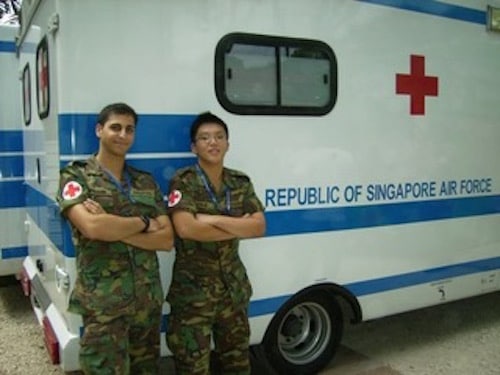
By the time I successfully reached my Operationally Ready Date (ORD) and concluded my National Service (NS) experience I had grown immensely. Not only had I learned the skills to be recognized as an operationally ready Air-Force medic, but my growth also manifested in many other ways:
I had reached fitness goals I never considered in the past, I took on a leadership role in a 24-hour air base medical center, and I made friends with many individuals from backgrounds I had never really been exposed to. Perhaps most significantly, I was also given the opportunity to develop my sense of identity. By the time I left the army, not only did I embrace my Iraqi heritage, but I was also a proud Singaporean upon my honorable discharge. This was something I had not experienced, nor something I thought I’d ever feel being so far removed from my countrymen during my time in school.
Eventually, it was my time to leave the island for university. My destination was New York City — New York University. to be exact. During my orientation I quickly met many international friends from places like the USA, India, England, and even some from Singapore. I was eager and excited to embark on a similar journey that my international high school friends had begun two years prior. Starting this experience after NS allowed me to do so in an enriched way.
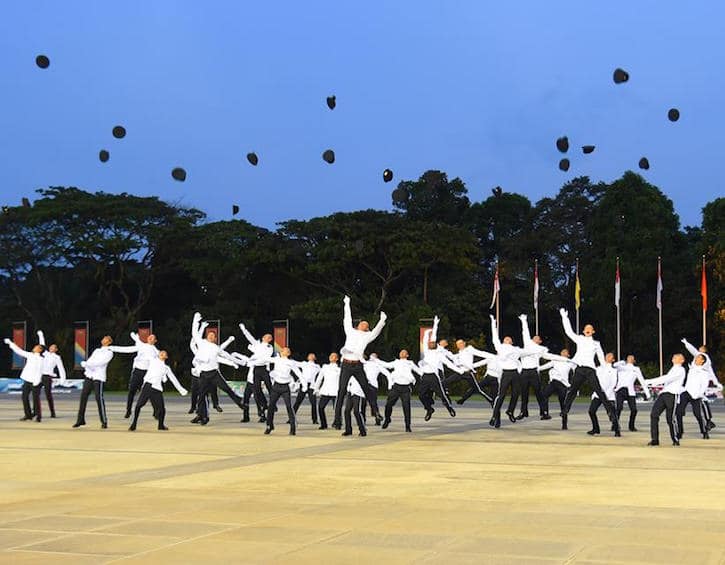
I was able to better navigate my higher education after having two years to reflect on who I was as a person. I am now a licensed clinical psychologist in California. I specialize in working with children and young adults. Within my clinical practice, I consider daily the unique importance identity development has for young men and women; to be able to manage the expectations of parents, academic stressors, and a whirlwind of new emotional experiences.
Although I can only speak for my experience, I believe that the opportunity for young men to grapple with aspects of their identity during NS is perhaps the biggest asset afforded over the two years. In an age where young men across the globe are often encouraged not to show their true feelings, are culturally sanctioned to endure stress, and are more susceptible to certain mental disorders, I believe the NS experience has the potential to deliver unique supports. NS does not merely allow young Singaporean males to become prepared soldiers, but it also can potentially help them become more psychologically resilient young men.
Read more:
How to Foster Grit and Resilience in Your Kids
It’s OK for Boys to Cry: Raising Sensitive Boys






 View All
View All





 View All
View All









 View All
View All


